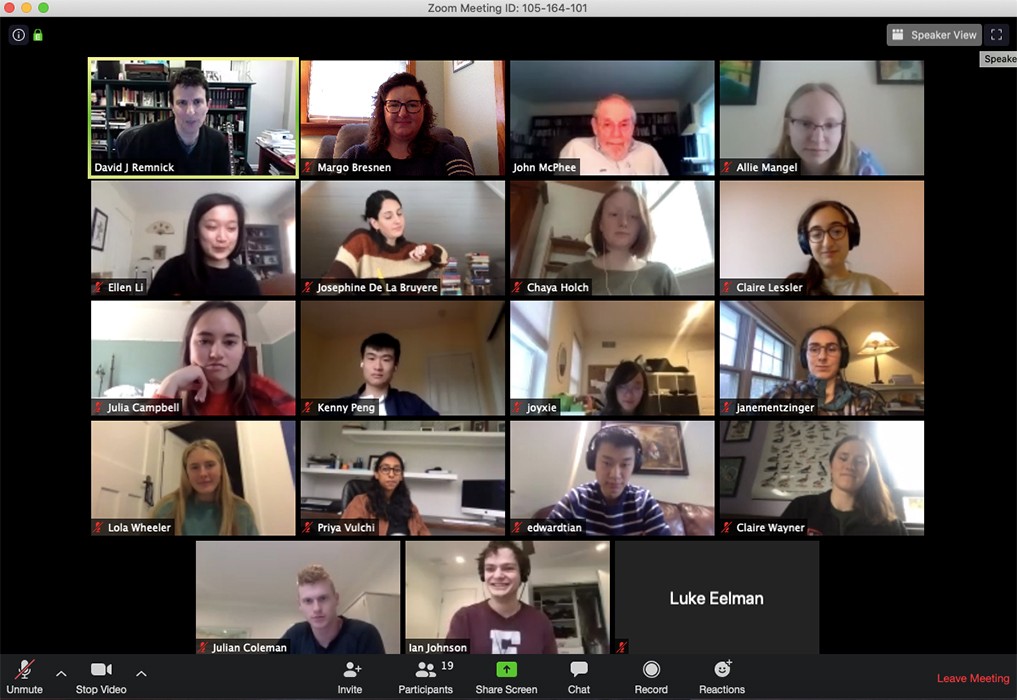As I just passed the deadline for my junior independent work (JIW), I wanted to explore strategies that could be helpful in composing a research proposal. In the chemistry department, JIW usually involves lab work and collecting raw data. However, this year, because of the pandemic, there is limited benchwork involved and most of the emphasis has shifted to designing a research proposal that would segue into one’s senior thesis. So far, I have only had one prior experience composing a research proposal, and it was from a virtual summer research program in my department. For this program, I was able to write a proposal on modifying a certain chemical inhibitor that could be used in reducing cancer cell proliferation. Using that experience as a guide, I will outline the steps I followed when I wrote my proposal. (Most of these steps are oriented towards research in the natural sciences, but there are many aspects common to research in other fields).
Continue reading How to Write a Research Proposal as an UndergradWhy Zoom Office Hours Are Better (and tips for making the best use of them)

If there is one thing we as students have mastered in the COVID-19 pandemic, it is Zoom and the Zoom environment. Looking back to last spring, it is admirable how educational institutions and students adapted to an unprecedented global crisis and continued with their academic and non-academic roles. Here at Princeton, the transition to Zoom was relatively smooth given the uncertainty and fear at the time. Although the initial stages of scheduling an online semester were difficult, there was a strong desire to sustain many of Princeton’s activities for the virtual campus community. The concerted efforts of students, faculty and staff have paid off. The three semesters of virtual learning I’ve had so far mimicked almost all the characteristics of the usual in-person experience I’ve come to expect at Princeton, including access to office hours.
The main medium for virtual interaction is Zoom, and it has been adapted for almost every facet of university activity, from school clubs and organizations to school hosted events and webinars. In this post, I will take a closer look at the Zoom office hours, their many advantages and in some cases, how they are actually better than in-person ones. I will then offer some suggestions for making the best use of Zoom office hours this spring.
Continue reading Why Zoom Office Hours Are Better (and tips for making the best use of them)Coming Back to Campus in January? A Look into a Hybrid Semester and its Challenges
Like most students at Princeton, I am really looking forward to next semester. Having taken into account the pandemic and the Princeton community’s well-being, the university is offering all undergraduates the option to return to campus, even though most classes will still largely be held online. Consequently, Spring 2021 will be the second time since the pandemic began where we can experience a different side of Princeton – a hybrid semester, where there will be a mix of in-person and virtual classes. A hybrid semester presents a lot of opportunities to enhance the educational experience from a fully virtual semester like the one we had this fall. Next semester, I am looking forward to the small things — like seeing more students outside of classes and interacting with them as guidelines allow. However, it is likely that there will be new and old challenges for students on and off-campus. Although it is difficult to predict exactly how the semester will unfold, I outline three challenges that stand out to me, so that we can prepare for them beforehand.
Continue reading Coming Back to Campus in January? A Look into a Hybrid Semester and its ChallengesReflecting on your first Midterm to Perform Better on the Final
For most of us undergraduates, midterms tend to be a stressful time, even more demanding than finals or Dean’s Date. This is because we go through midterms while classes and assignments continue as usual. In contrast, we have a week-long reading period at the end of the semester to focus on writing papers and preparing for finals. If you are a first year–student, you have the additional stress of going through Princeton midterms for the first time and you might have realized that they can be quite different from exams in high school. Therefore, it is not unusual for first years to receive grades on midterms below their expectations. When I was a first year, I learned how I could use my midterm grades as guideposts to help me identify which courses I most needed to adjust to and improve my final grade. It is important to note that midterms scores will not always fully correlate with finals and that there are plenty of opportunities after midterms to adjust strategies and improve performance. Here are some of the strategies I have found helpful when looking to bounce back from a midterm.

